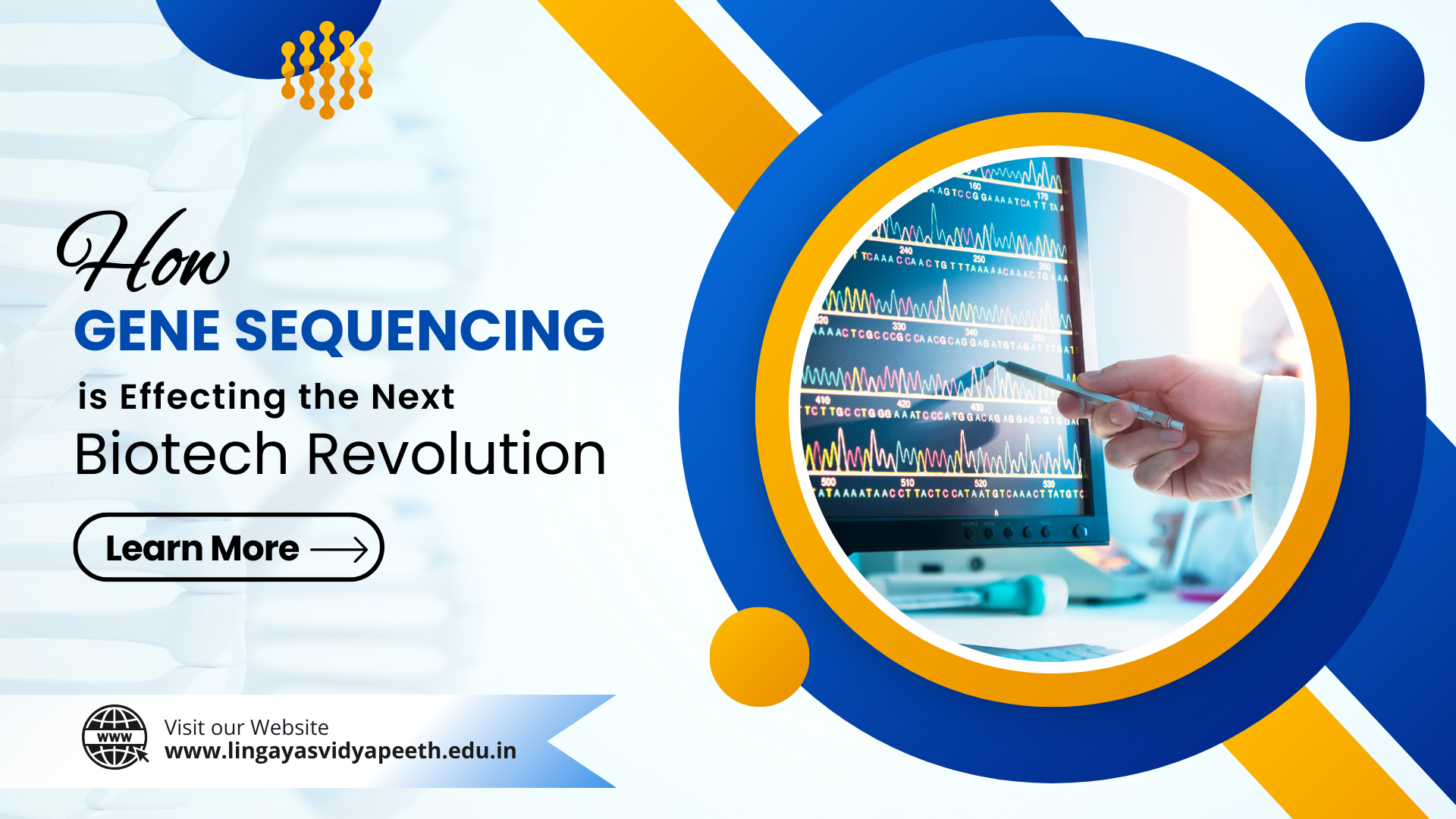Home » How Gene Sequencing is Effecting the Next Biotech Revolution?

Imagine a world in which diseases are detected with a simple DNA test and individualized treatments are matched to your specific genetic makeup. The revolutionary field of gene sequencing has made this future a reality. Gene sequencing, which deciphers the complicated code of life imprinted in our DNA, is changing biotechnology and ushering in a new era of healthcare and beyond.
DNA, or deoxyribonucleic acid, is the instruction manual for life. It contains the blueprint for every protein and molecule that makes up our bodies. Gene sequencing allows scientists to determine the exact order of nucleotides (the building blocks of DNA) in a specific gene or even an entire genome. This ability to “read” the genetic code unlocks a treasure trove of information:
The impact of gene sequencing extends far beyond the realm of medicine. Here’s a glimpse into some of the exciting applications across biotechnology:
The power of gene sequencing requires ethical issues. Concerns about privacy and discrimination based on genetic information must be addressed. Furthermore, the capacity to edit genes using techniques such as CRISPR poses complicated ethical concerns regarding modifying the human germline (sperm or egg cells), which may have unforeseen effects for future generations.
Despite the challenges, the future of gene sequencing is bright. As sequencing technology progress, we can anticipate the following:
In Conclusion, Gene sequencing is rapidly transforming our understanding of life and disease. The possibilities are as vast as the human genome itself, and gene sequencing is the key that unlocks a future filled with personalized medicine, sustainable agriculture, and a deeper understanding of the world around us.
Do you wish to pursue a BSc Biotechnology? Lingaya’s Vidyapeeth, the best university in Delhi NCR is the only one in Faridabad that offers a BSc in Biotechnology. Your path to biotechnological excellence begins here- at Lingaya’s Vidyapeeth. Join us on a voyage of scientific discovery, innovation, and influence in the rapidly evolving area of biotechnology.
From
Himanshu Arora
Assistant Professor
Department of Pharmaceutical Sciences
Lingaya’s Vidyapeeth
Top Colleges in Faridabad for B.Sc Biotechnology
RECENT POSTS
CATEGORIES
TAGS
Agriculture Agriculture future AI Architecture artificial intelligence Bachelor of Commerce BA English BA Psychology BTech AIML BTech CSE BTech cybersecurity BTech Engineering Business management career Career-Specific Education career guide career option career scope Civil engineering commerce and management Computer Science Computer science engineering Data science degree education Engineering Engineering students English Literature english program Fashion Design Fashion design course Higher Education Journalism journalism and mass communication law Law career Machine Learning mathematics MBA MBA specialization Mechanical Engineering Pharmacy Psychology Research and Development students
Nachauli, Jasana Road, Faridabad, Haryana
Address: C-72, Second Floor, Shivalik, Near Malviya Nagar,
Above HDFC Bank, New Delhi 110017
Landline No. - 011-46570515 / 45138169 / 41755703
Mobile No. - +91-7303152412 / +91-7303152420 / +91-9311321952
Toll Free: 1800-120-4613
Mobile : 8447744303 | 8447744304 | 8447744306 | 8447744309
8700003974 | 8700003411 | 8700003749
Copyrights © 1998 - 2025 Lingaya's Vidyapeeth (Deemed To Be University). All rights reserved.
LV only conducts physical/online verification of any document related to examination on the following email id:
It is important to note that the following email IDs and domains are fraudulent and do not belong to our university.